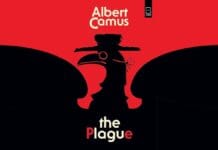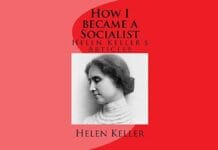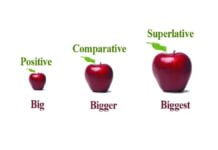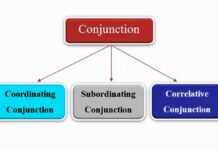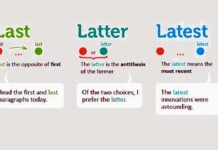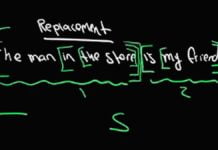A Consumer’s Report by Peter Porter is a satirical critique of consumerism and commodification in modern society. It reflects on excessive materialism, loss of human connection, and the impact of consumer culture on our lives. This modern poem presents a conversation between a consumer and a retailer. On one side stands the poet as a buyer; on the other, an unknown seller is waiting for feedback from his customer. Ironically, the product is “life”, the most precious yet impermanent. The deal has worked fine both for the poet and the seller. In this poem, the poet writes a reply or report about the product he has been using. Moreover, the way he presents the subject matter is fascinating. It gives readers a new perspective on life.
Summary
Peter Porter presents “life” as a product that the poet received from the manufacturer to use. The poet asserts that they’ve filled out the survey form they’d been provided, and he knows their responses won’t be shared with anyone else. The poet says that they received life for free. It left them somewhat numb; they wished it had been more thrilling. The poet’s body felt soft to the touch but generated awkward waste material (i.e., excrement). Life didn’t run efficiently, either; the poet has used up more of it than they realized (they guess their life is roughly half over, though it’s hard to know for sure). It comes with prominent rules, but they are so numerous and conflicting that the poet can’t tell which ones to obey. The poet also wonders whether life is safe for kids. It’s hard to imagine what life is really for. A friend claims that the “maker” created life only to be worshipped as God. Besides, life costs way too much.
There’s so much stuff going on, and Earth survived without life for years, so is it necessary at this point? (In an aside, the poet asks to no longer be addressed as “the respondent” because that term annoys them.) Life (or the body) comes with all sorts of confusing vocabulary; the poet continues that the sizes and shades of bodies ought to be standardized; the body is burdensome; it can survive in water but not extreme heat. Life is perishable but tough to end on purpose. Whenever life is treated as cheap, it seems to become less fulfilling, and if you try to reject life, you get more of it regardless.
The poet says that many people enjoy life; it’s a part of our everyday vocabulary, with some people even claiming they’re on its side. But to the poet, life is overrated, something trivial that makes people act foolish. The poet doesn’t believe we should treat it as anything special. It doesn’t matter whether life’s analysts are labelled “philosophers,” “market researchers,” or “historians”; those who use life (its average “consumers”) have the final say over it. The poet concludes that they’d purchase life. But they’d like to hold off on saying whether it’s the best use of their money until they’ve gotten a chance to try the alternative (i.e., death), the company promised.
The poet writes about the report of how the product worked for him. To sustain this product, the poet has to invest in it. So, it wasn’t an economical choice while he was buying it. Moreover, the poet says the product is tough to get rid of, and the container in which it thrives is also very costly to maintain. At some point, the poet thought to keep it aside. But, in reality, it isn’t possible for a living person. After writing a lengthy report describing the pros and cons of the product, like an educated and alert buyer, he says he’d like to buy it if the seller sends him the “competitive product” he promised.
Theme
Porter’s poem delves into the human condition and experience, treating life as something that can be reviewed like a commercial product. This approach highlights the commodification of life experiences in modern society.
- Commodification: The commodification of every aspect of human existence, reducing life to a series of transactions, is a significant theme.
- Existential Inquiry: Underneath the satirical surface, the poem poses philosophical questions about the meaning and purpose of life.
- Satisfaction and Value: It challenges the reader to consider what true satisfaction in life means and how it is valued by society.
Tone and Mood
Porter’s tone is humourous and sombre, veering between satire and existential reflection. While the poem mocks the idea of assessing life in consumeristic terms, it also conveys a subtle existential despair about the human condition. This duality allows Porter to critique contemporary consumer culture while engaging with more profound philosophical questions about the meaning of life.
Narrative Voice
The poem is presented as a consumer’s testimonial or report, with the speaker reviewing the ‘product’ of life as if assessing its quality and performance, which adds a layer of irony since life’s complexities resist such simplistic evaluation.
Metaphor
The central metaphor compares life to a consumer good that all “purchase” and for which there seems to be no possibility of a refund. This metaphor extends throughout the poem, inviting readers to reflect on life’s inherent value outside market-based transactions.
Structure and Form
The poem is a free verse that is 51 lines long. The free verse structure allows for a conversational tone, emulating how one might speak when delivering an actual consumer report, which enhances the satirical impact. Its structure often mimics the format of a consumer review, complete with pros and cons, evaluations, and summaries. This structural decision reinforces the poem’s thematic focus and satirical edge.
Language and Imagery
Porter uses the language of consumer culture to significant effect, employing terms and phrases typically found in product advertisements and reviews. The vivid imagery in the poem reinforces the absurdity of life’s trials and tribulations being treated like consumer features, such as the product having a “built-in obsolescence,” a clear nod to the inevitability of mortality. The use of commercial language like “this product”, “my overall rating”, “after-sales service”, etc. juxtaposes the material aspects of consumer goods with the intangible qualities of life experiences.
Social Critique
Porter is making a broader social commentary on how capitalist consumer culture has permeated even the most intimate aspects of human existence, suggesting a loss of authentic value in life. The poem is an insightful commentary on how market values have infiltrated personal and existential realms. It prompts the reader to reconsider their participation in consumer culture and question how culture influences their perspectives on life and self-worth.
A Consumer’s Report uses the metaphor of life as a marketable commodity to satirize the consumer culture and explore deeper existential issues. The poem remains poignant in its application to various aspects of life, keeping the work timely and resonant with readers from different backgrounds and at different times.

